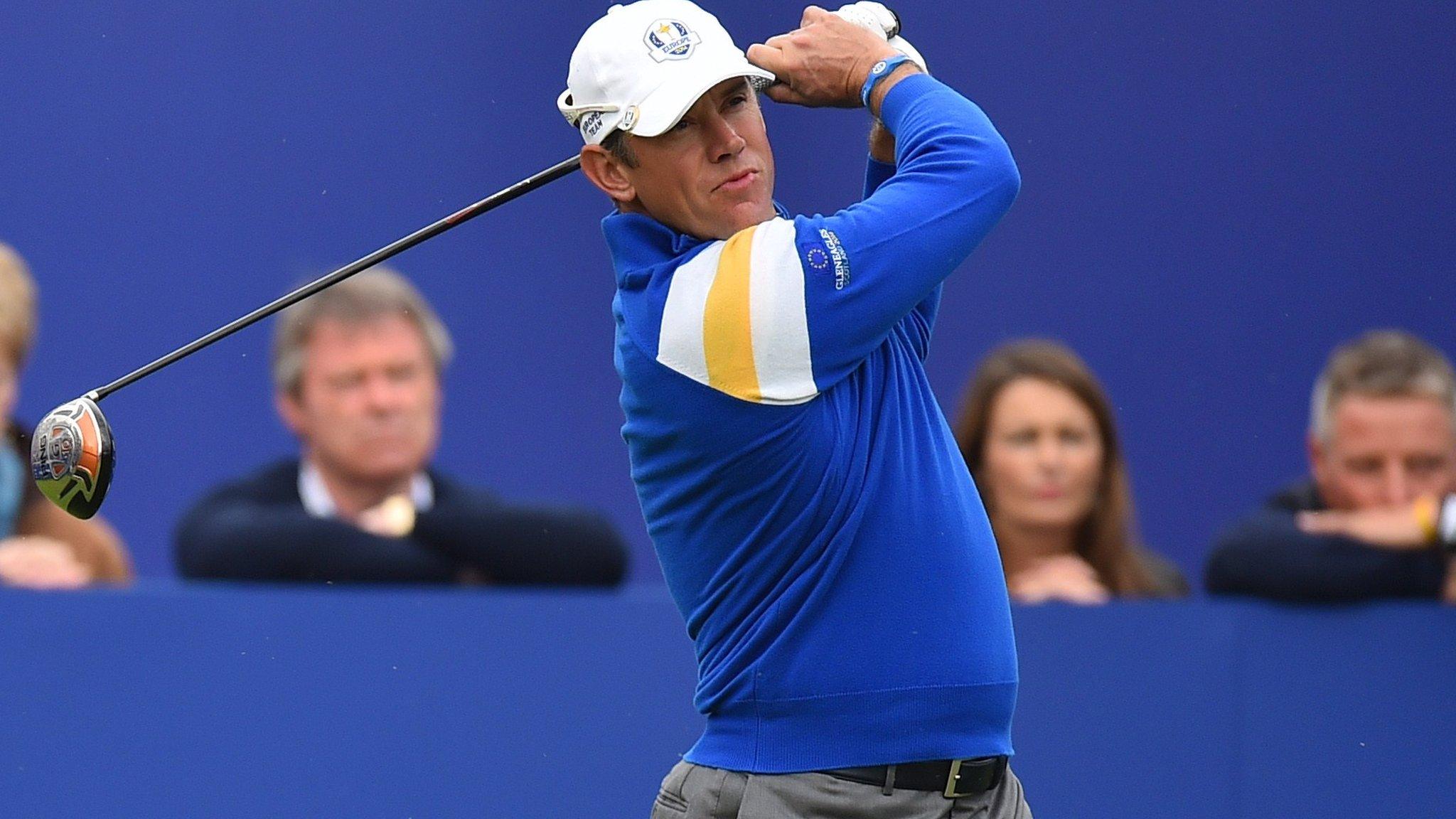Ryder Cup 2016: Will banking on experience pay off for US at Hazeltine?
- Published
- comments
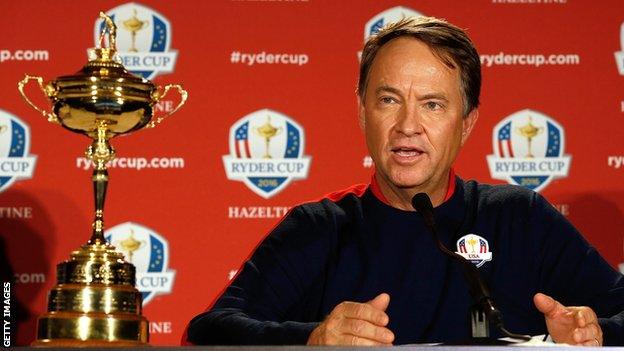
Davis Love III is back in charge of the US Ryder Cup team having also filled the role in 2012
Amid the recriminations that so swiftly followed America's third successive Ryder Cup defeat two years ago, there seemed to be a consensus that a fresher approach was needed to halt the US decline in these biennial matches.
Phil Mickelson's outspoken criticism of 2014 skipper Tom Watson immediately after their comprehensive 16 1/2 - 11 1/2 thumping by Europe at Gleneagles set the ball of change in motion.
A "Task Force" was assembled and Davis Love III, the captain in Medinah in 2012, was reinstated to lead the team at Hazeltine later this month. He quickly installed Tiger Woods, Jim Furyk, Steve Stricker and Tom Lehman as his assistants.
The "Brains Trust" to plot the wresting back of the famous trophy had been brought together early and provided tangible evidence of a new, fresh and more urgent approach.
Ever since there has been repeated propaganda that the US are better prepared than for any other Ryder Cup.
Despite being off the Tour injured, Woods has been a central figure, branded by Love "the tactician".
Last Sunday Woods joined his fellow vice captains on a conference call - Furyk and Lehman were in the room with Love, and Stricker was on a satellite phone. This was the time to thrash out the first three of four wildcard picks.
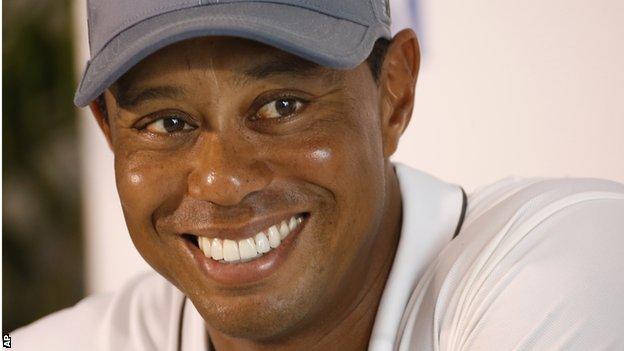
Tiger Woods has been described as the US tactician in their bid to win the Ryder Cup
Inclusivity is the theme in this new era for American golf. Watson was seen as autocratic and blinkered to his player's wishes and Mickelson, left out for the whole of Saturday at Gleneagles, made sure we all knew.
Now it is all about the collective. Mickelson claims the players already know with whom they will be paired and when they will be sent out during the Ryder Cup.
And as they finished their rounds at Sunday's BMW Championship, Zach Johnson and Jimmy Walker were phoned and asked for their opinions on the picks.
Yet this fresh approach yielded conservative selections that limit the amount of new blood in the American team.
Matt Kuchar, Rickie Fowler and JB Holmes all have Ryder Cup experience, but only the latter has been on the winning side. Holmes claimed two and a half points out of three and was one of the mainstays of the US victory at Valhalla in 2008.
Fowler is the most contentious selection. A disappointing PGA Tour season came to an abrupt end when he finished 59th at Crooked Stick last Sunday.
He could only watch as Holmes, of all people, holed out for a par at the last. It meant Fowler's finish was too low for him to progress to the Tour Championship and he will have no more competitive golf before the Ryder Cup.
It is also worth pointing out that he has yet to win a match against Europe, but this will be his first home Ryder Cup.
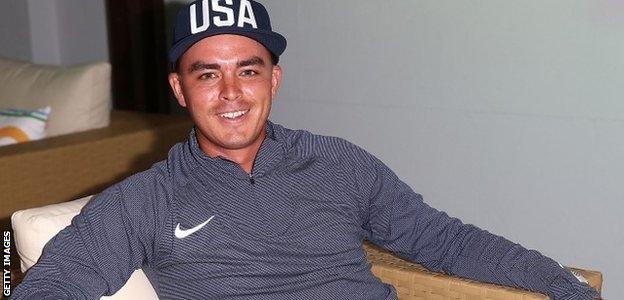
Fowler has yet to win a match in Ryder Cup competition
Kuchar performed strongly in Indiana, finishing in a share of fourth, and the Olympic bronze medallist will head to the season finale in confident mood. He was, surely, the easiest pick.
All along Love has known that he has the more experienced team. Of his eight automatic qualifiers, Brooks Koepka is the only rookie. Europe will have six newcomers at Hazeltine.
But how valuable is experience when the accrued knowledge is predominantly of defeat? Is there not a greater need for the US to bring in new blood to reinvigorate their Ryder Cup fortunes?
The Golf Channel's statistical guru Justin Ray tweeted illuminating statistics that show how well US debutants have performed in the most recent matches. Since 2010 rookies have a 22-17-9 (W-L-H) record compared with 31-41-11 for the old timers.
Love says that he and his assistants have crunched all sorts of numbers to come up with the selections so far, but the relative success of these newcomers did not come into the equations.
"We didn't really look at rookies versus experience," Love stated. "We looked at adding to our team to build the best, now 11, that we could.
"Experience is good. We know what to expect. We know how to handle it, how to deal with it.
"We're going to learn from our mistakes in the past and build on it," the captain added.
There is one more tournament for players to impress and clinch the final berth. World number seven Bubba Watson will be highly motivated having qualified for the Tour Championship in 24th place.
But his form is lacking, he did not win a point at Gleneagles two years ago and has the reputation of being not the easiest character to partner.
Love might prefer the likes of Daniel Berger, Ryan Moore, Kevin Kisner or Justin Thomas to mount a compelling case at East Lake next week.
Whatever happens, and regardless of the conservative nature of the picks and America's dismal recent record, the home team are favourites with the bookmakers.
And probably with justification. The return of Dustin Johnson (absent two years ago attending to personal issues) is a massive boost as he showed with his brilliant victory at Crooked Stick.
Only Paul Casey could live with the US Open champion and the Englishman, currently the most in-form European, is not eligible for the Ryder Cup because he failed to join the continental circuit.
In stark contrast to his opposite number, Europe's skipper, Darren Clarke, has to make the most of a team full of youthful enthusiasm but short on experience.
America might have a fresh approach but Europe have the newer looking team.
- Published12 September 2016
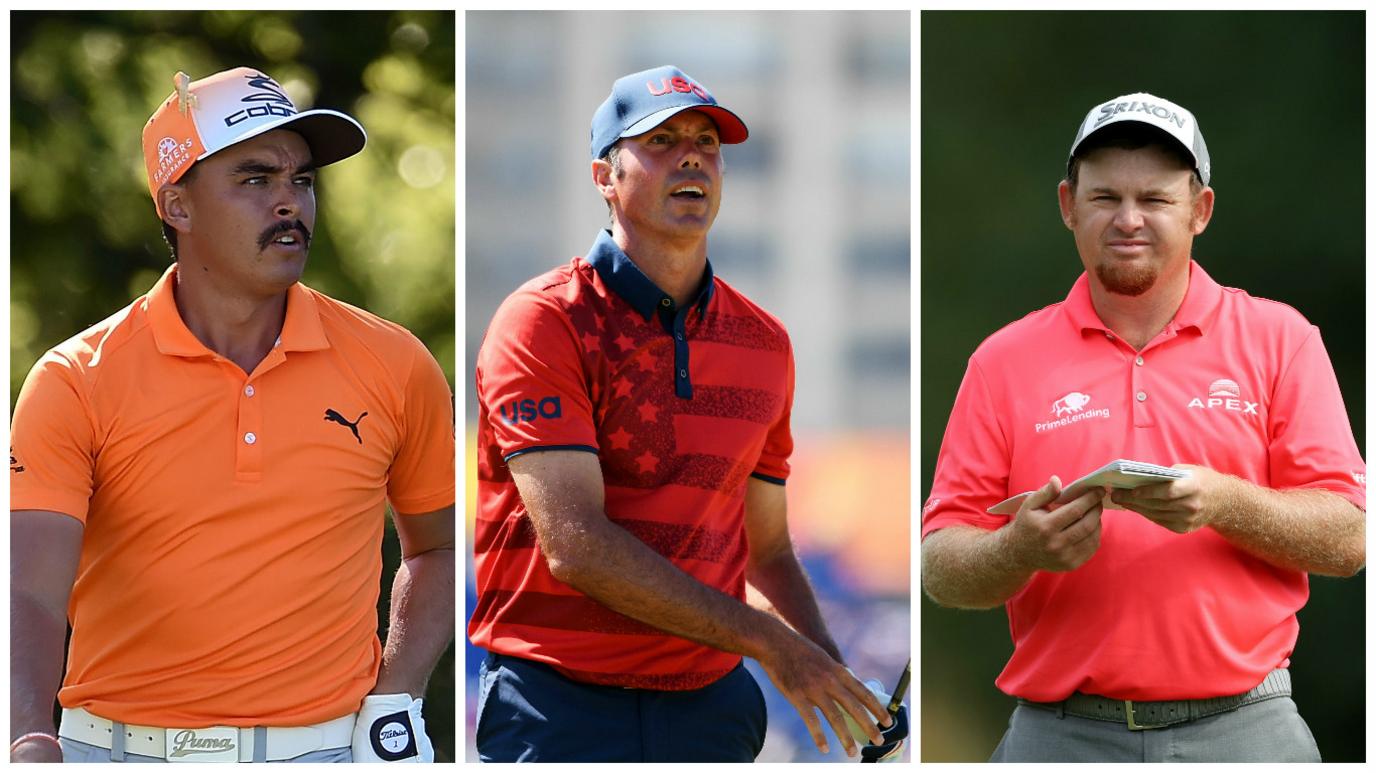
- Published2 October 2016
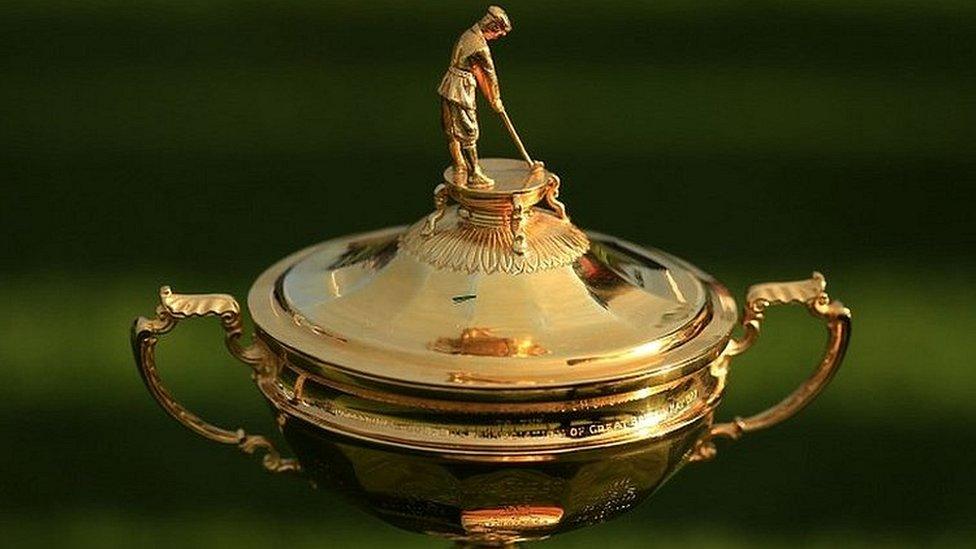
- Published30 August 2016
